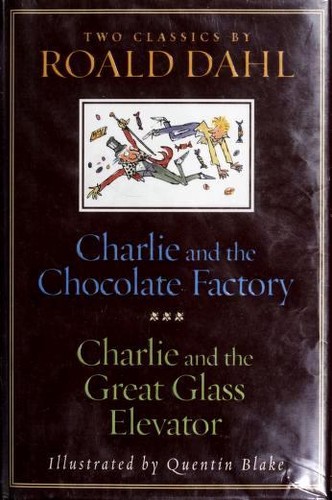
Revolting Rhymes
Book Description
Prepare for a riot of laughter and mischief as classic fairy tales take a jaw-dropping twist! Roald Dahl's 'Revolting Rhymes' flips beloved stories on their heads, serving up wickedly funny twists that will leave you on the edge of your seat. Imagine cunning wolves outsmarting naiveté, and charming princesses wielding more than just beauty. Each page bursts with unexpected encounters and outrageous antics, brilliantly illustrated to intensify the thrills. Who could have imagined that bedtime stories could spark such chaos? What happens when the tales you thought you knew roar back with a vengeance? Dare to find out!
Quick Book Summary
Revolting Rhymes by Roald Dahl is a delightfully subversive collection of six classic fairy tales rewritten in rhyming verse. With his signature wit and irreverence, Dahl reimagines stories such as Cinderella, Snow White, and Little Red Riding Hood, giving them surprising twists and subverting the traditional roles of both villains and heroes. The playful language, outrageous humor, and Quentin Blake’s lively illustrations combine to create a uniquely entertaining experience that appeals both to children and adults. The book cleverly highlights the absurdities of the original tales while infusing them with contemporary morals, sharp satire, and a hefty dose of silliness. Each poem ends with a shocking or comical revelation, ensuring readers are always kept on their toes. Revolting Rhymes is a mischievous romp that challenges expectations and reinvents the stories everyone thought they knew.
Summary of Key Ideas
Table of Contents
Twisted Takes on Fairy Tales
Roald Dahl’s Revolting Rhymes breathes raucous new life into six classic fairy tales by retelling them in witty, mischievous verse. Stories like Cinderella, Jack and the Beanstalk, and Goldilocks are given outrageously unexpected makeovers, often leading to shocking or laugh-out-loud conclusions that jar far from traditional happy endings. Dahl uses playful poetry to captivate readers, while Quentin Blake’s illustrations elevate the book’s anarchic spirit, visually amplifying the mayhem and delight that bursts from every page.
Subverting Expectations and Stereotypes
A core element of the book is its consistent subversion of traditional fairy tale tropes and characters. Damsels in distress morph into independent thinkers or take matters into their own hands—sometimes wielding pistols instead of relying on princes. Villains such as wolves aren’t just sinister caricatures; they often outwit the protagonists or become unexpectedly sympathetic. The result is a collection that playfully exposes the absurdities and limitations of familiar stories while delighting in the reversal of expected roles.
Dark Humor and Satire
Dark humor and biting satire dominate the tone, with Dahl never shying away from gruesome fates or ironic twists. Cinderella’s stepsisters meet grim ends, the Big Bad Wolf is dispatched with swift justice, and Jack’s mother faces dire consequences for her greed. By exaggerating the violence and moral ambiguity commonly sanitized in children’s versions of fairy tales, Dahl both lampoons the genre and flirts with its macabre roots, ensuring children delight in the taboo while adults appreciate the biting critique.
Moral Ambiguity and Unpredictable Endings
Moral lessons in Revolting Rhymes are never straightforward. Instead, Dahl toys with the idea of what is considered just or deserved. Good behavior doesn’t always result in tidy rewards—sometimes, quick thinking and assertiveness are far more valued than passive goodness. As a result, each poem concludes with an unpredictable ending, leaving lingering questions about justice, fairness, and the true nature of “happily ever after.”
Playful Poetry and Illustration
Dahl’s use of bouncy, sing-song rhyme creates an irresistible rhythm that propels the stories forward, making them ideal for reading aloud. Quentin Blake’s whimsical illustrations perfectly complement the text, capturing the book’s rebellious tone and inviting readers deeper into its fantastical world. Together, their collaboration ensures that Revolting Rhymes remains a classic of children’s poetry—irrepressibly funny, ever surprising, and endlessly engaging.
Download This Summary
Get a free PDF of this summary instantly — no email required.





